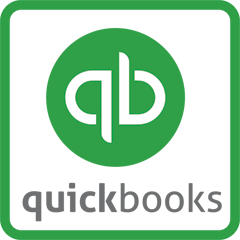“Ultimately it’s all about cash flow”
“Ultimately it’s all about cash flow” by: Fred Burmont
OK, you are in business but now you have questions:
- Why do I not have any cash since my business has profits?
- How much can I take as my “paycheck” from my company?
- Can I afford to hire some help?
- What are my most profitable products (or services)?
- How much do I need to sell to break even?
- What do I need to do to increase profits?
- Do I need to get a loan or line of credit?
Since 2014 I have had the opportunity to assisting more than 500 Larimer Small Business Development Center (SBDC) clients to understand their business financial statements and better manage their business finances.
financial statements and better manage their business finances.
As an experienced CFO, and former small business owner, I know that of the three basic financial statements, the Cash Flow Statement reflects the “life blood” of the business and that sufficient ending cash balances are the key to a healthy business.
The Cash Flow Statement (Statement of Sources & Uses of Funds) can be derived from the historic accrual-basis Balance Sheet (Statement of Assets, Liabilities and Owner Equity) and the Income Statement (“Profit & Loss Statement”). However, I have found that many small business owners are not familiar with accrual-basis accounting–but they do keep track of their bank account on a cash-basis.
Therefore, my approach is to assist our clients in using their operating cash (checking) account as an intuitive way to plan the cash flow of their business.
I have developed a MS Excel spreadsheet “Biz Cash Flow Model” as a tool to project cash flow and ending cash balances on a monthly basis—in parallel to the business’s monthly bank statements. There is a version for “Products-type” businesses, and one for “Service-type”.
The “Biz Cash Flow Model” is available to use free of charge by any of our SBDC clients.
Fred Burmont
Certified SBDC Business Consultant
March 27, 2019
Frederick J. (“Fred”) Burmont, a semi-retired former Chief Financial Officer (CFO) and former Colorado-licensed Certified Public Accountant (CPA) with more than 40 years’ financial management experience. Since 2014 he has provided his services as a Certified Business Consultant for the Larimer County, Colorado Small Business Development Center (SBDC). He specializes in assisting clients to understand, plan and manage their business finances. He has helped clients to develop Business Plans and cash flow projections.
s of 3/1/19 he has conducted 829 consulting sessions for 512 SBDC clients.
Previously Burmont served 5 years as the Vice President of Finance for Upstate Colorado Economic Development a not-for-profit agency devoted to supporting economic development and job opportunities in Weld and Larimer County communities. His responsibilities included managing the Weld/Larimer Counties Revolving Loan Fund, a federally-funded financing program for small businesses.
He has 25 years’ experience as a corporate finance officer including 15 years as part-owner and Financial Vice President of Chaparral Industries, Inc. a metal products manufacturing company headquartered in Denver. He served as the CFO, responsible for all financial, strategic planning, accounting, budgeting and cash management functions. The company grew from 10 employees and $1 million in annual sales to 93 employees and $14 million in sales over the 15 years.
For 6 years he served as Senior Business Manager/Division Controller for Knowledge Interact, a division of Soft Bank Group/Comdex, and for 4 years as Vice President of Finance & Administration for Staodynamics, a publicly-held (NASDAQ National Market) manufacturer of FDA-approved transcutaneous electrical nerve stimulation medical devices.
A native of Colorado, born and raised in Denver, he is a graduate of the University of Colorado with a BS degree in Business, majoring in Accounting and Finance, and the University of Denver, Graduate School of Business Administration, with a Certificate in Marketing Research.










